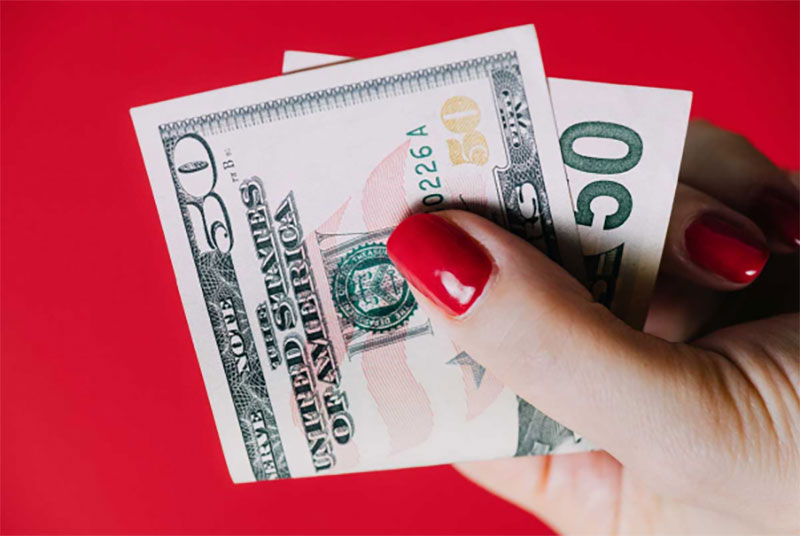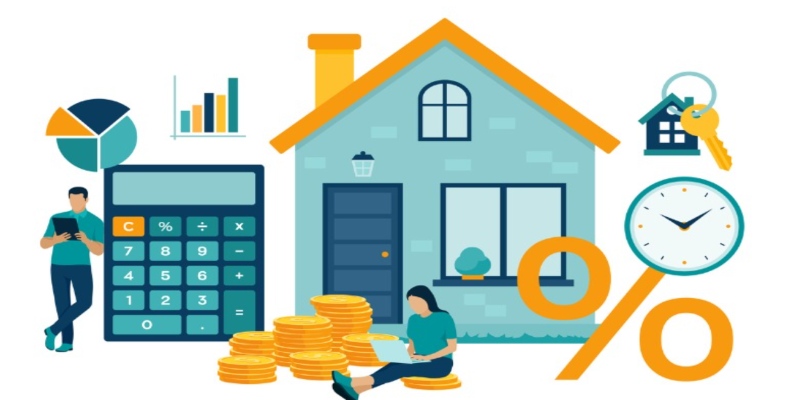What Is an Escrow Refund?
Jan 08, 2024 By Susan Kelly
If you’ve ever had a transaction involving real estate, then surely you have heard of escrow. Escrow is an important part of any successful real estate transaction as it serves as a third-party middleman responsible for holding funds until a certain condition is met.
A key aspect of this process is the potential to receive an escrow refund when requirements are satisfied; however, many may still be unaware of what this entails and how exactly one gets their money back from escrow.
Escrow Refunds and How They Work

In the context of real estate transactions, an escrow refund is the return of funds held in escrow. Escrow works by having both parties in the transaction set up a secure account with an independent intermediary; this middleman holds all relevant assets and documents until a predetermined condition is met, such as closing on the sale or refinancing a loan.
Once that condition is satisfied, any corresponding funds held in escrow are released to either party.
There are several reasons why one may receive an escrow refund: it could be due to overpayment, cancellation of terms that were originally agreed upon (such as canceling a contract or loan), or if there were any excess funds left over once the transaction was completed.
The Process of Obtaining an Escrow Refund

To obtain your escrow refund, you must ensure that all terms and conditions have been met. This includes ensuring that all relevant documents and assets involved in the transaction have been released or transferred and that there is no longer a need for the intermediary’s services. Once everything has been resolved, it’s time to request your refund.
Contact the escrow holder or intermediary managing the transaction to start this process. Ask them if any remaining funds can be returned to you as an escrow refund. If they agree, ensure you provide them with your contact information so they can send the refund to you as soon as possible.
It’s also important to ensure that any fees associated with the escrow service have been covered before you request a refund. Otherwise, these will be deducted from your total amount.
Once your escrow refund has been processed and approved, it should arrive. As a check or direct deposit within a reasonable period. Be sure to communicate with your intermediary throughout this process and check in periodically for updates on when you will likely receive your funds back from escrow.
Benefits of Escrow Refunds
In addition to the convenience of having a third-party hold your funds until a certain condition is met, there are several other benefits associated with obtaining an escrow refund. Here are 8 advantages you can expect to receive:
- Security: An escrow service provides an extra layer of security between parties involved in a transaction as the intermediary acts as a neutral agent who holds all relevant assets and documents until the conditions of the agreement are satisfied.
- Compliance: Escrow companies are also responsible for ensuring that all legal requirements to finalize the transaction have been met, helping to avoid any potential issues when it comes time for transfer or closing down payment.
- Convenience: Escrow refunds allow both parties to receive their money back promptly without worrying about collecting from the other party.
- Transparency: The intermediary is also responsible for providing detailed records of all transactions, helping to create an accurate timeline, and ensuring everyone involved is on the same page throughout the process.
- Savings: Most escrow companies offer competitive rates, which can help reduce costs associated with long-term transactions such as mortgage loans or real estate purchases.
- Efficiency: Because the escrow company acts as a go-between for both parties, it helps to streamline the communication process and ensures that any requests or questions are addressed quickly and efficiently.
Reasons Why You Might Receive an Escrow Refund
There are several scenarios in which one might receive an escrow refund.
- Overpayment: If you’ve paid to the escrow account larger than what was required, you might receive a refund for the difference.
- Cancellation of Terms: In certain cases, such as if a loan is refinanced or a contract is canceled, any extra funds left in the escrow account can be returned to the rightful owner.
- Excess Funds Leftover After Closing: Depending on how much money was put into escrow and how many fees were associated with it, there might be some leftover funds that can be refunded to you after closing.
- Early Payment Release Request: If all terms have been met, but one party requests an early payment release, the escrow company can issue a refund for any funds that were not needed.
These are just some of the reasons you might receive an escrow refund; however, it’s important to remember that each situation is unique and should be handled accordingly.
How do I open an Escrow Account?
Before taking advantage of the benefits associated with escrow, you must set up an account. This process is fairly straightforward and involves a few simple steps:
- Find an Escrow Service Provider: Research different companies offering escrow services to find one that meets your needs. Make sure they are reputable and reliable before making any commitments.
- Sign the Agreement: Once you’ve chosen an appropriate service, review and sign the agreement outlining all terms and conditions for using their services.
- Provide Required Documents: The provider will likely request several documents from both parties involved in the transaction, such as proof of identity, bank account information, etc., to ensure everything is in order.
- Deposit Funds: Depending on the agreement, you may need to deposit a certain amount of money into the escrow account as a payment or security measure. This is usually done through a wire or electronic funds from your bank.
- Settle Disagreements: If any disagreements arise between parties throughout the process, the escrow company will help mediate them and ensure that everything agrees with proceeding with the transaction.
FAQS
What is escrow used for?
Escrow is used as a secure way to ensure that all terms of an agreement are met before any assets or documents are exchanged between two parties. Funds held in escrow can also be released to either party once the conditions have been satisfied, such as closing on the sale or refinancing a loan.
What happens to escrow money?
Once all conditions have been met, the escrow company will distribute any unused funds to the rightful owners according to how it was outlined in the agreement.
How long does an escrow refund take?
The timeframe for obtaining a refund from an escrow account can vary depending on how quickly both parties can meet their obligations; however, it usually takes a few days to several weeks.
Conclusion
Understanding what an escrow refund is and how it works is important. Escrow refunds can help ensure the buyer and seller remain committed to their agreement. They can safeguard both parties if something unforeseen happens and prevent costly disputes or disagreements post-transaction. An escrow refund is an important part of many real estate transactions, and understanding how they work can help prepare you for any future purchasing decisions, making sure that you are informed when it comes time to close.
-
 Mortgages Oct 11, 2023
Mortgages Oct 11, 2023The Path to Homeownership: Understanding VA Home Loans
If you're a military veteran, a VA Home Loan could be your ticket to Homeownership. Learn all about VA Home Loans, eligibility, benefits, and how to apply.
-
 Mortgages Oct 11, 2023
Mortgages Oct 11, 2023Choosing the Right Loan: Personal Loan vs. Mortgage
Trying to decide between a personal loan and a mortgage? This article breaks down the differences and helps you make the right choice for your financial needs.
-
 Taxes Oct 11, 2023
Taxes Oct 11, 2023EY TaxChat Review: Professional Tax Preparation Made Easy
Looking for hassle-free tax preparation? Read our EY TaxChat review to explore this professional service's varied pricing and benefits.
-
 Know-how Nov 29, 2023
Know-how Nov 29, 2023A Comprehensive Guide: Is Medicare a Mandatory Requirement?
This comprehensive guide explores the Medicare program, detailing its components, eligibility criteria, benefits, and potential alternatives for healthcare coverage.
